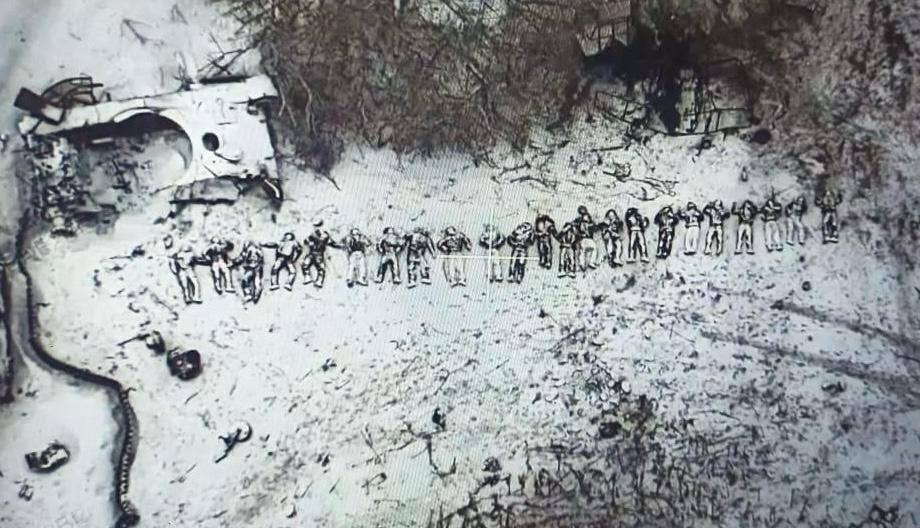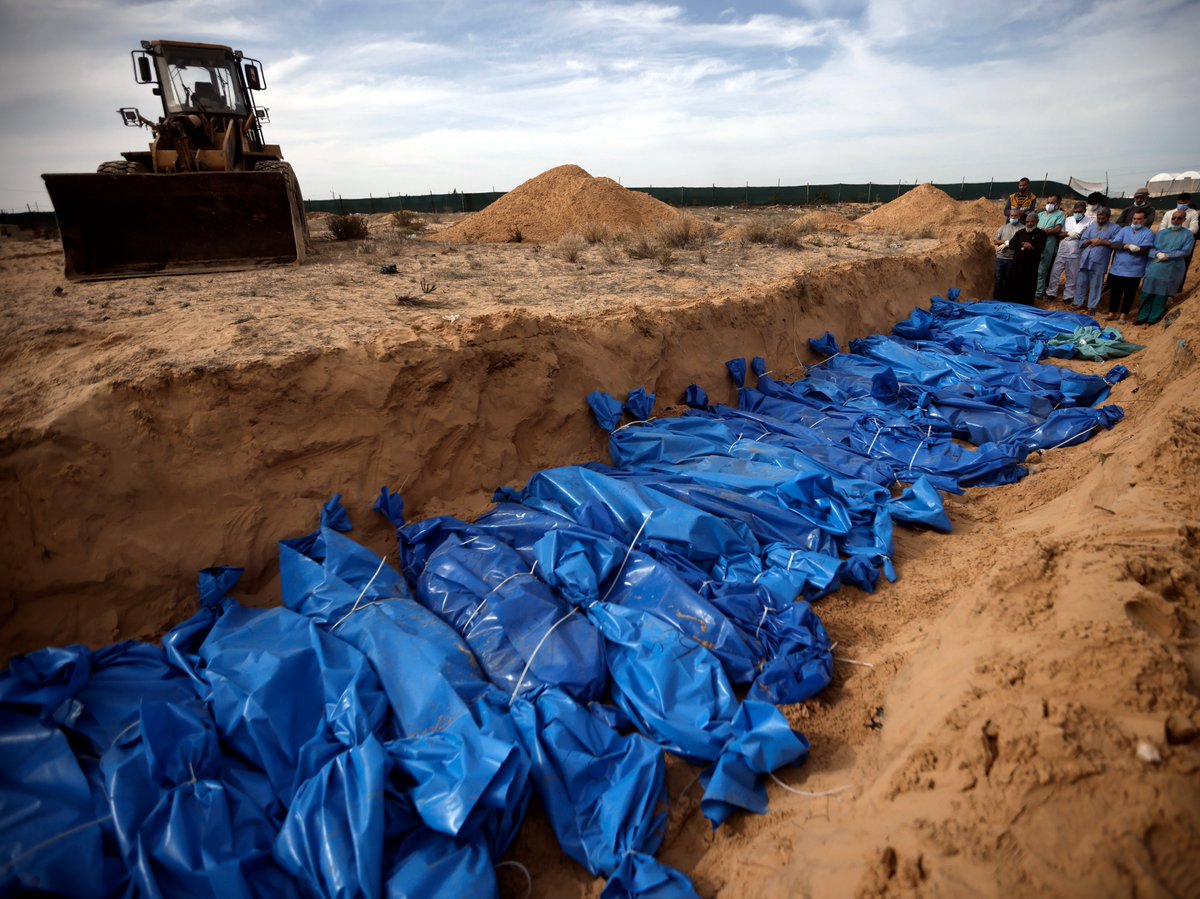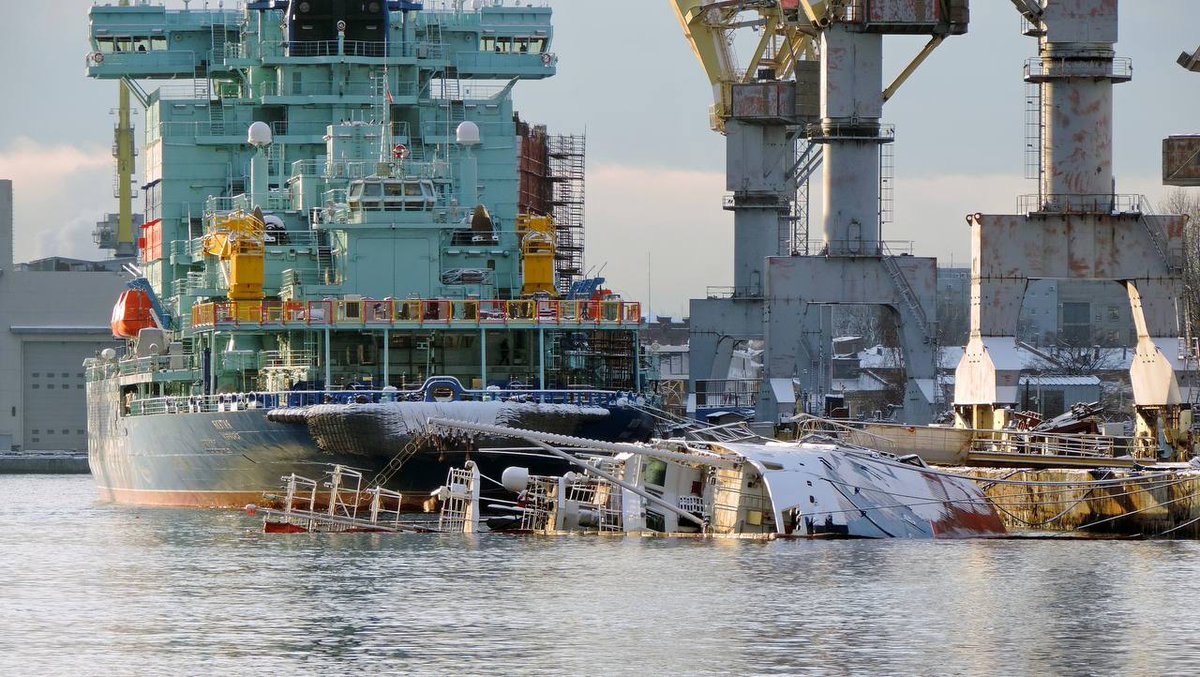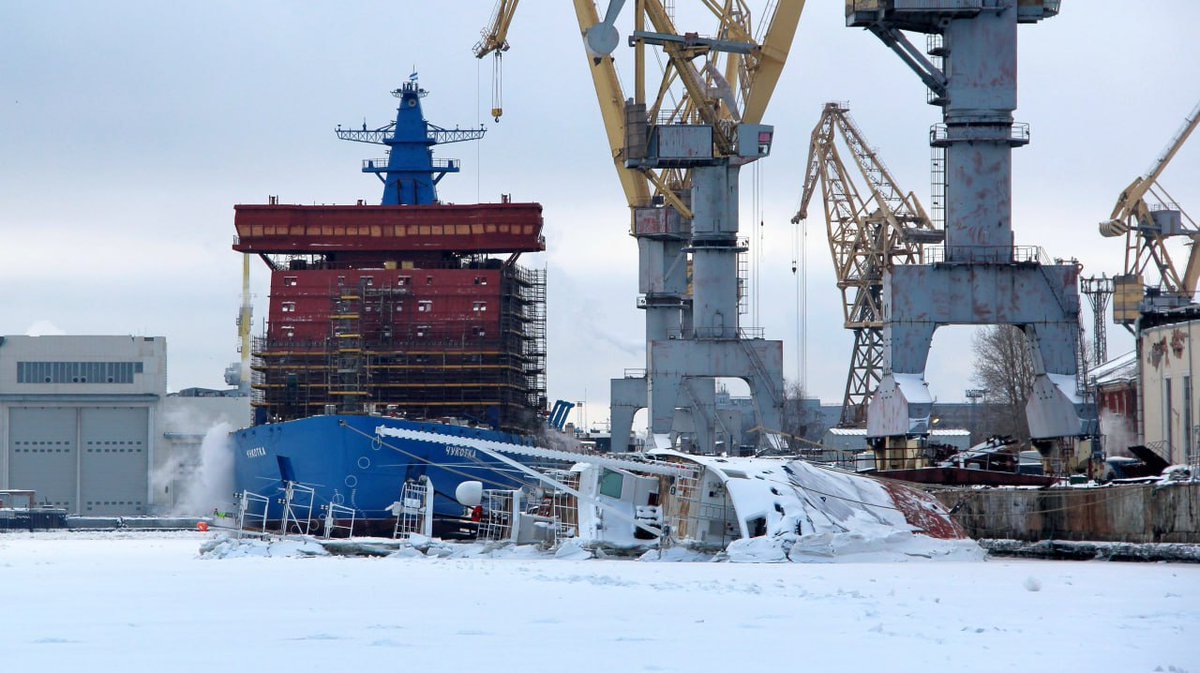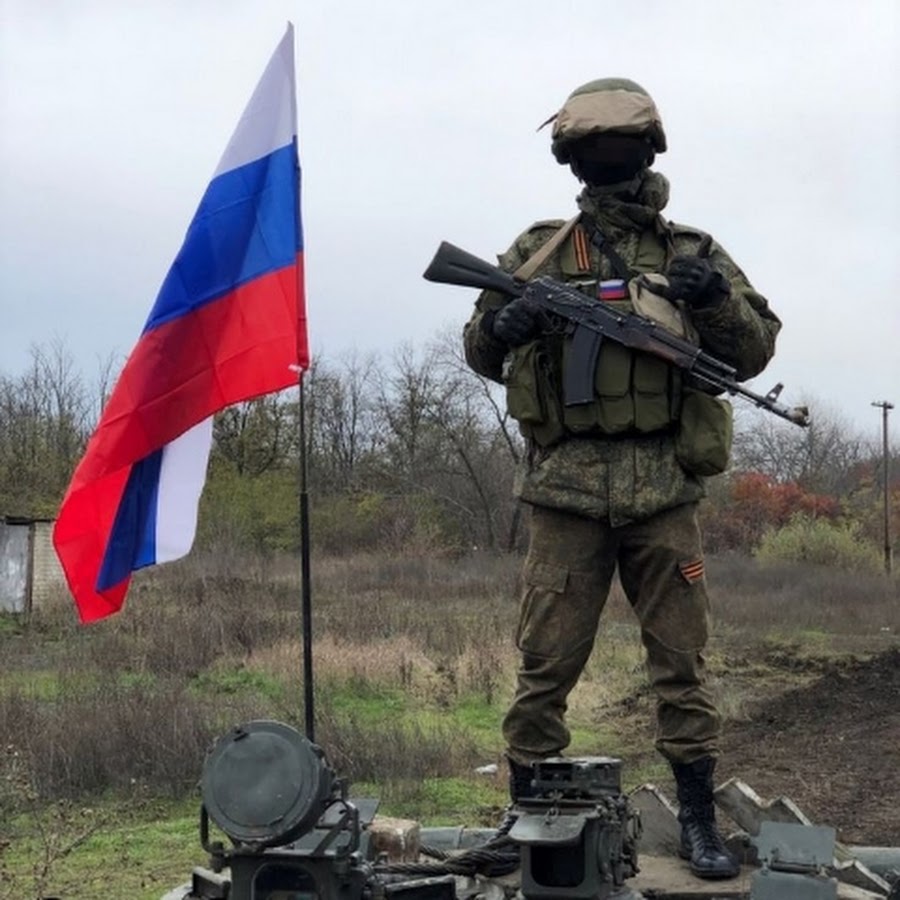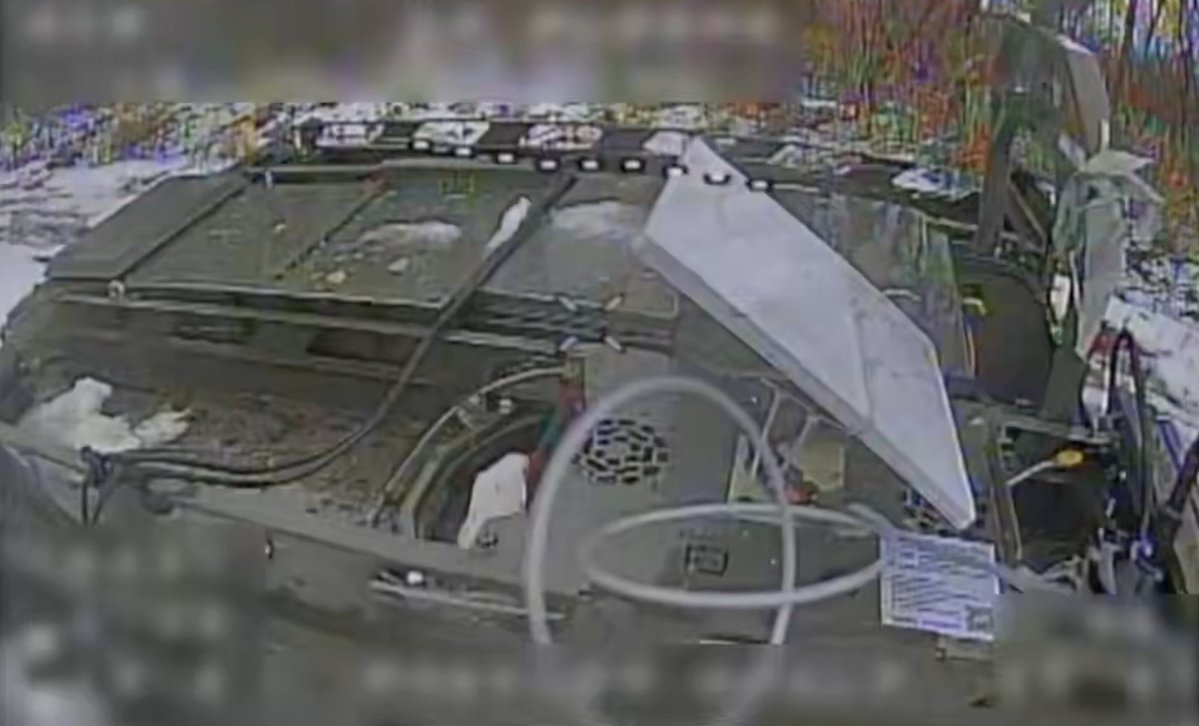1/ THE SINKING OF MOSKVA, PART 2: The sinking of the Russian Black Sea Fleet flagship on 13-14 April 2022 was the greatest loss for the Russian Navy since World War II. The father of one of the dead sailors has published an inside account of how it happened. ⬇️
2/ This thread describes Dmitry Shkrebets' account of how the crew tried to save Moskva after two Ukrainian Neptune missiles struck her starboard side at 14:20 on 13 April.
For part 1, see the thread below.
For part 1, see the thread below.
https://x.com/ChrisO_wiki/status/1918190255271715122
3/ The chaos and confusion aboard the ship after the missiles struck is captured in audio released by Ukraine in May 2022. A Moskva crewman can be heard radioing for help with emergency sirens blaring. "[This is] Moskva", he says, "two hull breaches below [sic] the waterline."
4/ "It's laying on its side. Communication with bridge cut off, it's silent. It's going to the side, it's tilting. Tilt is 30 degrees... No propulsion to approach, commencing crew rescue to the best of our abilities."
5/ The ship's officers organised emergency parties to extinguish the fires and flood the magazines. However, Shkrebets says, fire suppression systems partially failed and the crew resorted to "dragging water in buckets" to try to put out the flames.
6/ This was likely a result of damage from the explosion of the first missile, which may have broken the fire suppression water main. A very similar loss of water occurred in 1982 on HMS Sheffield after being hit by a missile, and likewise led to men having to resort to buckets.
7/ The men in the engine room and the main damage control post found themselves trapped in dense smoke, "because all the bulkheads and the gangway there were destroyed." Everyone in the alternate command post on the port side was already dead.
8/ A plan to pull the trapped men out with ropes was dismissed as too dangerous. Instead, they were told to escape through portholes into the sea. 35 of them got out but five died of hypothermia in the 9°C water before they could be rescued.
9/ It was impossible for the emergency parties to get into many of the impacted areas because of the combined effects of fire, blast and uncontrolled smoke. Many men were likely trapped in the mess hall and gallery, or in spaces nearby, and died quickly from asphyiation.
10/ The evacuation was very hazardous. A group of sailors left the aft part of the galley and mess hall in a "human chain" in conditions of zero visibility. "At some point two people “got unhooked”, and no one saw them again..."
11/ At 15:30, the conscript sailors were ordered into lifeboats and rafts. Two of the rafts were in such poor condition that they were at risk of sinking, and were left unused in the water. The Ukrainians later found one adrift.
https://x.com/nexta_tv/status/1570878928239333378
12/ The contract (professional) sailors were left on board Moskva, while the conscripts and the wounded were picked up by the rescue ship Epron and the frigate Admiral Makarov. The two vessels remained in the vicinity of Moskva until she sank the following day. 



13/ All three vessels were imaged by a Copernicus Sentinel radar satellite at 18:52 local time, showing Epron close to Moskva and Admiral Makarov a short distance away. This was likely fairly close to the site of the missile strikes, as Moskva had been underway at the time. 

14/ Over the course of eight hours, frantic efforts were made to save the ship. Hoses were rigged to put out the fire in the stern, which was eventually achieved. The crew pushed forward from compartment 14 in the stern, reaching compartment 10 before they could go no further.
15/ Intense heat and smoke stopped the forward progress of the firefighters. By this point, "the duralumin bulkheads were already melting, and the deck (26 mm of steel) was deformed." The situation deteriorated further when the fire reached oxygen and ammunition supplies.
16/ Oxygen cylinders began exploding in the interior of the ship, and "flames began to break through (in places) to the upper deck (through cracks and fractures)". The fire spread to an upper deck room ('cellar no. 1') holding 30 mm ammunition for an AK-630 rotary cannon. 



17/ Despite efforts to flood the room, partly thwarted by faulty fire suppression, the shells began exploding at about 22:30. There was also an growing threat to storage rooms containing depth charges, and flames were breaking through underneath the Vulkan P-1000 missile tubes.
18/ The firefighting and evacuation efforts were made more difficult by equipment shortages and failures. The IP-46 gas masks on Moskva used filter cartridges manufactured between 1966 to 1984, with a service life of 7 years. Many of them didn't work. 

19/ "One midshipman said that when he crawled out of the smoke, only his third RP (cartridge) went off – in the first two bags they were faulty. But he is a midshipman, he is trained, so he did not lose his head.
20/ "And the conscript sailors had never even held these gas masks in their hands, of which there was a limited number of them in good condition, given the decades of their storage."
The ship's portable breathing apparatuses were also found to be faulty.
The ship's portable breathing apparatuses were also found to be faulty.
21/ Shkrebets writes that the crew "began to open the boxes in which they were stored (the boxes were sealed by the quality control department of the manufacturer, and it was forbidden to open them unless there was an emergency." 

22/ "Even special commissions checked the integrity of the factory seals on them. It turned out that about 30% of them lacked masks!?"
23/ There were only 12 firefighting suits available on Moskva, split between the stern, the damage control centre in the middle of the ship, and four in the forward emergency post. Only the forward four could be used due to the other areas being inaccessible or destroyed.
24/ By 19:56, 256 people had been evacuated from Mosvka, comprising the conscripts and the wounded (the numbers suggest that around 170-200 of the crew were casualties by this point). The stricken cruiser was taken under tow at 20:25 by the frigate Admiral Essen. 

25/ "Meanwhile," Skhrebets writes, "the cruiser Moskva continued to list to the left side more and more. It was already difficult to maintain balance on the upper deck."
26/ The increasing list brought the holes made by the missiles closer and closer to sea level.
"A boat was sent to inspect the height of the missile holes above sea level; initially it was 3–3.5 meters. And by the evening of 13 April – only 30-50 cm."
"A boat was sent to inspect the height of the missile holes above sea level; initially it was 3–3.5 meters. And by the evening of 13 April – only 30-50 cm."
27/ At 21:38, the senior flotilla officer ordered that everyone on the ship not involved in firefighting should be evacuated. This was completed by 21:56. Only about 80 crewmen were left aboard Moskva to fight the fire, which by now had consumed the entire engine space.
28/ Efforts to save Moskva were finally terminated at 22:45 when the commander of the Black Sea Fleet ordered the remaining crew to abandon ship. The fire was threatening to detonate the P-1000 missiles as well as stocks of torpedoes and depth charges.
29/ The bow of the ship was no longer safe due to the detonating 30mm ammunition, so the surviving personnel "were grouped on the [stern] helipad, under the cover of the helicopter hangar, for organised preparations to abandon the ship."
30/ Admiral Essen dropped her tow at 23:00 and retreated to a safe distance, along with Admiral Makarov and Epron. By 23:38, the evacuation from Moskva had been completed, with the burning ship left to drift uncrewed overnight.
TO BE CONTINUED: the last hours of Moskva.
TO BE CONTINUED: the last hours of Moskva.
• • •
Missing some Tweet in this thread? You can try to
force a refresh


